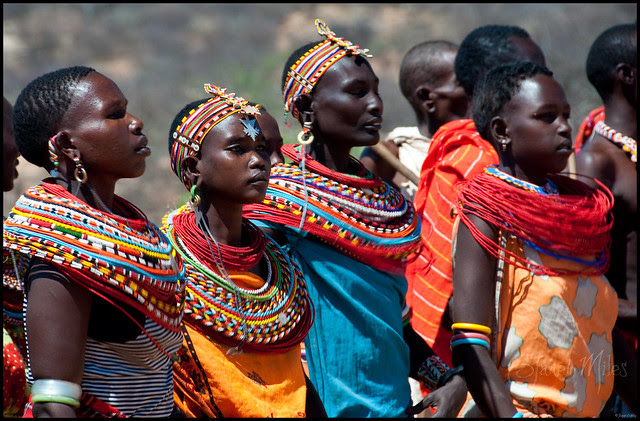
Kenya is a country in East Africa with coastline on the Indian Ocean. It encompasses savannah, lake lands, the dramatic Great Rift Valley and mountain highlands. It’s also home to wildlife like lions, elephants and rhinos. From Nairobi, the capital, safaris visit the Maasai Mara Reserve, known for its annual wildebeest migrations, and Amboseli National Park, offering views of Tanzania’s 5,895m Mt. Kilimanjaro.

Kenya brought in a new progressive, rights-based constitution in 2010, which provides the legal framework for the government to fulfil basic rights, and for marginalized and vulnerable groups, especially women and children, to claim their rights. However, women still face challenges including the ability to participate effectively in decision making and leadership and that the majority of the female members of the national parliament and the county assemblies are new to the legislature. The situation is compounded by the absence of a credible and vibrant women’s movement to advocate for the constitutional gender equality gains.

The main functions of women in most pre-colonial societies of Kenya were related to farming, child care, maintenance of the household, market vendors
The Kenyan economy remains vulnerable to external shocks and unemployment continues to be a challenge and there are additional challenges for women. For instance, while over 80% of Kenyan women are engaged in small holder farming, only 1% own land in their own right, access less than 10% of available credit, and less than 1% of agriculture credit.

In Kenya, female poverty is exacerbated by gender based violence, including sexual violence, rape, physical violence and sexual harassment. Women’s empowerment is hindered by polygamy, early marriage and harmful cultural and traditional practices such as female genital cutting. Traditional practices governing inheritance, acquisition of land and benefits accruing to land produce continue to favour men. Women’s ability to access the justice system is limited by legal costs, traditional justice systems, illiteracy and ignorance of rights. Women are also disproportionately affected by HIV/Aids with 6.9% of women aged 15 to 64 affected, compared to 4.4% for men of the same age group.
![500+ Kenyan Woman Pictures [HD] | Download Free Images on Unsplash](https://media.istockphoto.com/photos/laughing-african-american-young-adult-woman-with-amazing-hairstyle-picture-id1193252686?b=1&k=20&m=1193252686&s=170667a&w=0&h=sc6EjrqjXWtQ0-YkyUSjPz371mBB1W_hLUDQ_2y-P80=)
Women lead and participate in governance
The outcomes of this programmed are that women participate equally in democratic governance structures and that women participate equally in national and devolved levels and in private and public institutions and that service delivery at national levels and in selected counties is gender responsive and gender equitable. UN Women Kenya will target women leaders and young potential female leaders and seeks to strengthen women’s ability to participate effectively in governance structures at national and local levels to influence the gender equality agenda. We will raise public awareness of the gender equality constitutional provisions, devolution and ongoing institutional reform processes and progress in terms of improved, gender-responsive service delivery. We will support efforts to establish a credible women’s movement to push forward a united agenda for implementation of gender equality constitutional provisions, continued gender-responsive development and quality service delivery.
Economically empowered women and youth benefit from public procurement and agriculture and extractive industries value chains
UN Women Kenya will enhance productivity, competitiveness and financial inclusion of women and youth entrepreneurs to benefit from public and private sector market opportunities. We will seek policy reform for affirmative action for women and youth’s economic empowerment and establish partnerships with the private sector to expand business relationships with women-owned enterprises, and support gender sensitive solutions to credit and lending barriers.

Women and girls live a life free from violence
This programme aims to increase public awareness and social mobilization to prevent and end violence against women and girls and to ensure public institutions and service providers are accountable to women and girls for prevention, protection and response. UN Women Kenya will continue support the Africa Unite to End Violence against Women Campaign, target men to mobilise against violence against women and girls, and work to mainstream violence against women and girls issues around the next election period. We will work with media to change attitudes about violence against women and girls, and engage government, civil society organizations, non-government organizations and other institutions such as the Kenya Women Judges Association to prevent and end violence against women and girls.
Peace, security and humanitarian action are shaped by women’s leadership
UN Women Kenya will work in partnership with government and civil society organizations to enhance gender-responsive programming in women, peace and security, humanitarian action and disaster risk reduction. We will provide technical leadership to UN agencies and share research and knowledge with partners including women’s organisations, the Kenya Red Cross Society and various government ministries.
National and devolved planning fully reflects accountability for gender equality commitments and priorities
This programmed will engage national governments, women’s organizations and networks and gender advocates to support gender-responsive national planning and budgeting processes. We will also support capacity strengthening of Government (including devolved government) to analyze, formulate and execute gender-responsive plans and budgets.
How lifting Kenya’s curfew may push revellers to get jabbed

The dusk-to-dawn curfew that Kenyans endured for 18 months was revoked last week by the president.
Uhuru Kenyatta chose to announce it on the public holiday when the East African nation remembers the heroes who fought for freedom from British colonial rule.
The country’s relief was palpable – and Kenyans online burst into immediate celebrations with amusing memes.
Some of them took a swipe at police officers, suggesting they would be dejected now they would be no longer able to continue their alleged practice of extorting bribes from people at roadblocks set up to enforce the curfew


 Trump administration offers to pay plane tickets, give stipend to self-deporting immigrants
Trump administration offers to pay plane tickets, give stipend to self-deporting immigrants  The Force Awakens: Aiden Anderson’s Rise in Dallas Amateur Boxing
The Force Awakens: Aiden Anderson’s Rise in Dallas Amateur Boxing  Tesla’s Cybertruck Will Rapidly Depreciate From Now On
Tesla’s Cybertruck Will Rapidly Depreciate From Now On  Was it really about the Lil Wayne Concert
Was it really about the Lil Wayne Concert  Black Chicago Activists Blast Mayor Brandon Johnson for “Replacing” Them With Migrants
Black Chicago Activists Blast Mayor Brandon Johnson for “Replacing” Them With Migrants  Migrants desperately digging through trash bins for food as they live out of buses in Chicago
Migrants desperately digging through trash bins for food as they live out of buses in Chicago  Sofia Llamas: A Force for Good in Colorado – Igniting Hope and Empowering Communities
Sofia Llamas: A Force for Good in Colorado – Igniting Hope and Empowering Communities  Thomas Edward Patrick Brady Jr, Shedeur Sanders, Travis Hunter, Shilo Sanders, Jimmy Horn Jr, Global Don, and more
Thomas Edward Patrick Brady Jr, Shedeur Sanders, Travis Hunter, Shilo Sanders, Jimmy Horn Jr, Global Don, and more